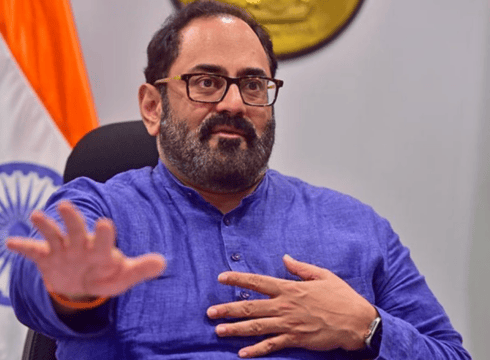The development follows after MeitY concluded its first-ever round of consultations with stakeholders on the draft Digital India Act
The draft bill would be out by April and the draft consultation will last another 90 days following that: MoS IT Rajeev Chandrasekhar
The government does not want a monolithic regulator to not stifle the young, innovations and startups: Chandrasekhar
Inc42 Daily Brief
Stay Ahead With Daily News & Analysis on India’s Tech & Startup Economy
The Digital India Act (DIA), a policy framework looking to replace the IT Act of 2002, would reportedly be ready by July 2023 following multiple rounds of consultations with industry stakeholders during that time.
The development follows after the Ministry of Electronics and Information Technology (MeitY) concluded its first-ever round of consultations with industry stakeholders on the draft Digital India Act in Bengaluru on Thursday (March 9). It was attended by as many as 300 stakeholders, of whom more than 200 attended virtually.
According to an ET report, the government is set to have two more rounds of consultations with the industry over the draft bill between now and March 20.
The draft bill would be out by April and the draft consultation will last another 90 days following that, according to the Union Minister of State for Electronics and IT Rajeev Chandrasekhar.
“We have undertaken for the first time ever consultation around the principal architectural design of legislation. The outcome of this consultation will be a draft. The draft in turn will be consulted extensively for a period that will be not less than 45 to 60 days,” Chandrasekhar said.
The minister of state said at the consultation event on Thursday that the Digital India Act seeks to manage the complexities of the internet and the rapid expansion of the types of intermediaries. The bill further seeks to protect citizens’ rights, address emerging technologies and risks and be future-proof, he added.
According to Chandrasekhar, given the size of India’s online space, there is a lot of space for criminalities and illegalities, and new forms of user harm such as catfishing, doxxing, cyber stalking, cyber trolling, gaslighting and phishing, among others.
The draft Digital India Act will seek to address these issues, being a principle-based legislation, the MoS IT added.
Talking about a regulatory body for digital entities similar to the Telecom Regulatory Authority of India (TRAI), Chandrasekhar told ET that the government does not want a monolithic regulator because the government does not want to stifle the young, innovations and startups.
“We want something that is a light touch. But at the same time when it comes to user harm and criminality, there should be effective deterrent power to address those issues. We don’t know what the regulatory design is yet but will certainly talk to people,” the MoS IT added.
In a related development, Chandrasekhar said at the consultation event in Bengaluru that the government will include privacy-invasive devices such as spy glasses and wearable devices in the legislation.
The minister sought the views of the stakeholders on mandating strict regulations for these invasive devices, including KYC requirements for retail sales and appropriate criminal law sanctions.
{{#name}}{{name}}{{/name}}{{^name}}-{{/name}}
{{#description}}{{description}}...{{/description}}{{^description}}-{{/description}}
Note: We at Inc42 take our ethics very seriously. More information about it can be found here.


